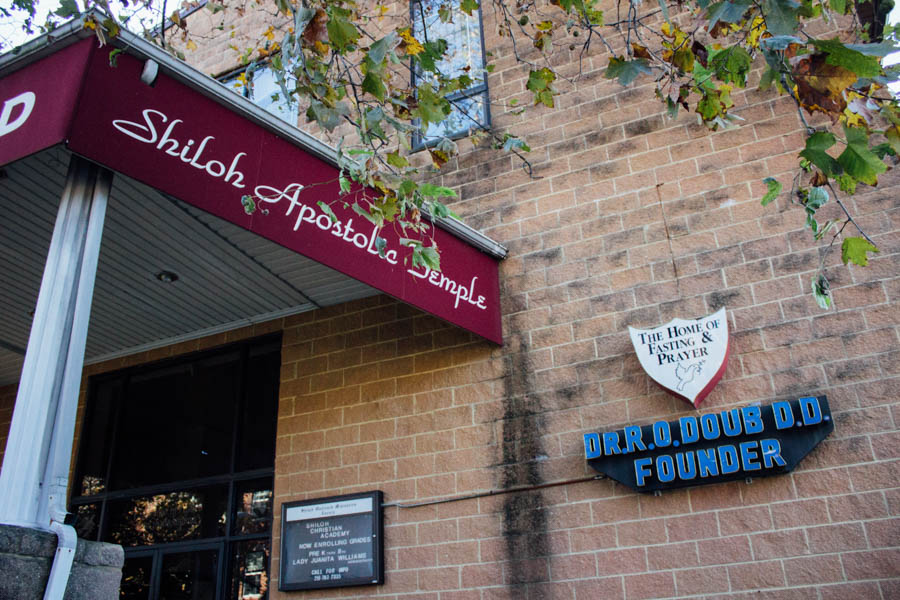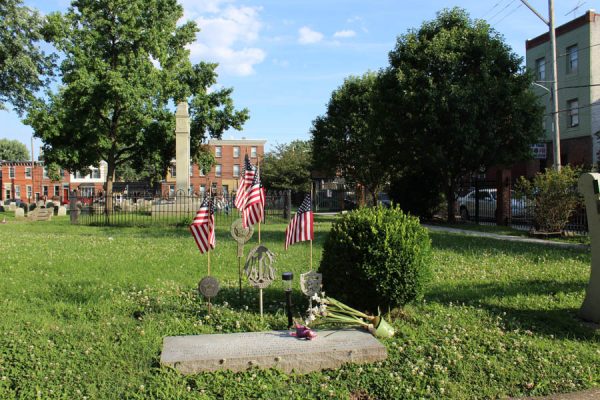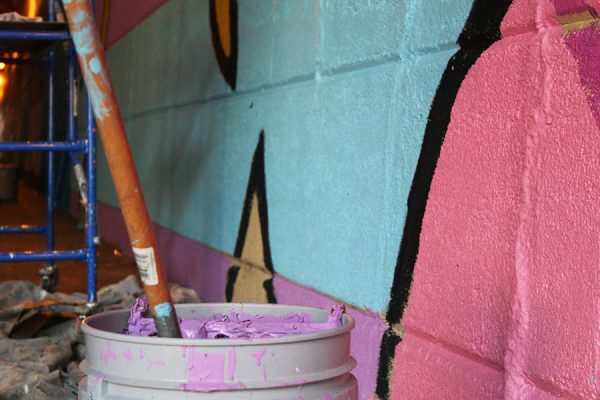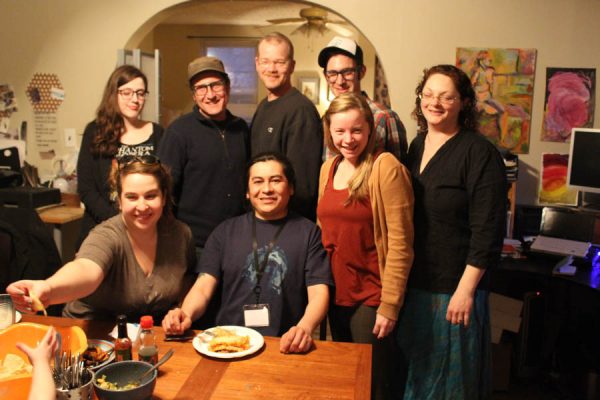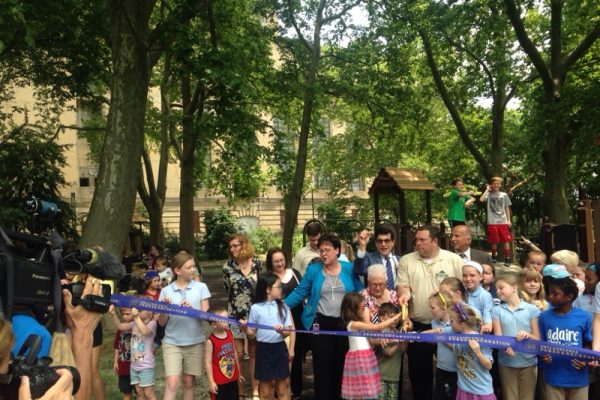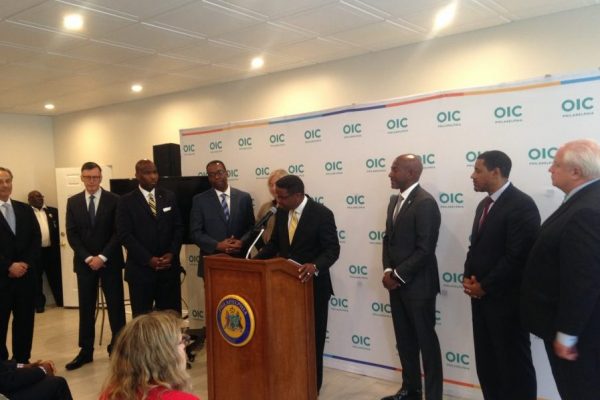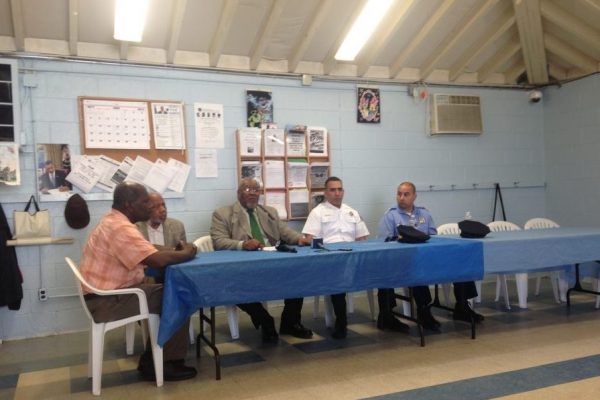Power From the Pews: Shiloh Apostolic Temple
As one approaches Shiloh Apostolic Temple, the white wrought-iron gate swings softly in the wind. Shadows of leaves from the tree sprout out of the sidewalk in front. The church has stood at 1500 Master St. since 1954. One of the two buildings that make up the church was built in the 1800s. The other, valued at an estimated $2 million as of the 1980s, was built in that decade without the help of mortgaging — it was paid for as they built it.
The front entrance leads to a vast service room with plush royal blue pews and stained glass windows. The stage at the front of the room is laden with gold and neon, fronted by the altar at which Philadelphia native Apostol Derrick L. Williams delivers his sermons.
“In 2017, we’ll be celebrating 70 years [as a church],” Williams said. “It started with two members in Marcus Garvey Hall back in the late 40s. Since it’s been here, it has done a wide range of community services. When the new portion opened in the 1980s, it opened with two banquet rooms. We’ve served the community in great ways, especially the black church community and other organizations.”
Williams claims that he is “not the typical pastor” — he is not from a religious family or a family of church leaders. “I came from a very dysfunctional family, a family riddled with alcoholism, crime… I am supposed to be dead or in jail, that’s what my fate is supposed to be. But at 51-years old, I’m here, leading this church. This church gave me everything I try to give to the young people today.”
Williams came to the church in 1979 at the age of 14. He says that the church community monitored his schoolwork and made sure he stayed on the right path, encouraging him to stay and participate in church.
“I worked in the church, got all my training in the church, and I certainly attribute the church to my success and preventing me from going in a negative direction,” Williams said. “At 14 you’re very impressionable, you’re at a fork in the road.”
He added: “They didn’t leave me to my own devices, they treated me like family. Whatever they were doing, I was welcome to do, whether or not I had money.”
These values and kindnesses are the same that Williams tries to extend to the youth at Shiloh Apostolic Temple.
Williams left in 2002, starting a church and a school in Chester, PA. When those expanded, he moved to Delaware. In 2009, the pastor serving before Williams passed away and Shiloh Apostolic Temple asked him to come home and take over the church. So, he did.
“I got married in this church 25 years ago. I raised my children in this church. I have children and grandchildren here. My background is here. This year, my wife and I renewed our vows here. I’ve tried to start businesses and employ people where I could, be it daycare, schools, banquet facilities… we just try to serve and serve our community.”
When Williams returned in 2009, the church started their most heralded community service asset — a K-8 Christian school that operates on site. More than 100 children are currently enrolled.
“We serve our community any way we can. When we see a particular need, if we are able to do it, we try to provide,” Williams said. “When we can see how bad the school system is, we try to provide an alternative — a safe environment, a clean environment with a high academic standard. We give community people who don’t necessarily have resources to send their children to some of the better schools [an alternative].”
The school began as a tuition based program, but has decreased over the years. Currently, the church subsidizes 100 percent of tuition so that parents can send their children to a private school for free. This is provided because of the church’s commitment to the youth and the prevention of future issues.
“I have always had the preventative mindset. I know people have to react to people when they are on drugs and incarcerated to stop some of the recidivism from the current. But I ask, what can we do as a church to prevent these things before they happen?”
Williams also says his church visits nursing homes, sends missionaries to its farm mission in Haiti and allows students to travel. They also host many annual banquets and honorary banquets, even offering their services to senators, mayors, congressmen and other politicians as a rally point for their campaigns. They’ve hosted breakfasts for Sheriff Jewell Williams, Mayor Jim Kenney and State Senate-elect Sharif Street.
“I don’t think electing someone or getting behind somebody necessarily guarantees you access to that person. I think, from my point of view, you try to support somebody who has the best character,” Williams explained. “If a person has good character, they’re going to call you back. They’re going to answer the needs [of the community].”
Williams, who is part of the Philadelphia Interfaith Coalition, the first predominantly black organization to support Mayor Jim Kenney, believes that, among other things, the power of the black church can be an asset or a detriment to the campaigns of politicians who engage with or overlook them and their communities, even crediting Hillary Clinton’s loss to her lack of campaigning at the churches.
“When I stand up in the pulpit and I say, ‘This person has our values,’ I don’t have to say much else. The people are going to pull that lever. You can’t turn out the black vote without the church.”
Williams has been somewhat critical of Kenney, though, saying that the Mayor “has not been as diligent with us as we were with him” following his election.
The church also tries to proactively deal with issues affecting the North Philadelphia community, one of which, Williams explains, is the gentrification brought on by an ever-expanding Temple University campus and community of students.
“Students have moved-in and taken over the neighborhood to the point that lifetime residents have been made to feel like they’re the intruder rather than that they’re home. Some of them have begun to feel very unwelcome in their own neighborhood.”
Williams explained that these changes to the neighborhood take place before the church realizes. For the residents affected, Williams said, “the role of the church is to try to support the neighborhood. Where we can provide jobs, we should provide them. Where we can help with affordable housing, we should do it. Where we can help with education, we should do it.”
The church has made a deal with a developer who will be rebuilding an apartment building for them so that they can rent to other residents while that specific developer builds student housing elsewhere. “We’re not opposed to students being here, but we want to keep our residents here as well,” Williams explained.
According to Williams, some students from Temple even attend the church. “I think the black church has to position itself to be able to provide jobs, education, and housing,” he said. “I think when we get to the place where that’s what we’re providing, then we’re helping our community.”
Do you want your church, parish, or group profiled in an upcoming edition of Power From the Pews, send us a message at news@spiritnews.org and we’ll get you set up with a reporter. We would love to hear your story! •

